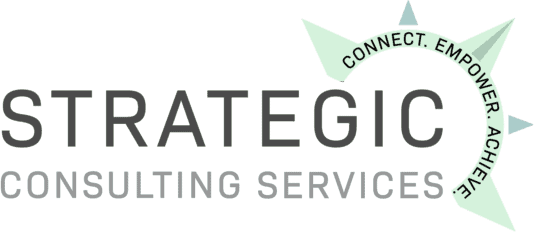When you mentor with someone in the workplace, it means that you’ve developed a learning alliance – one where you can share information, knowledge, and insights.
Although mentoring is advantageous for new employees, it’s especially helpful for people with disabilities. A person with a disability can benefit from mentoring as it helps them develop their social skills and allows them to recognize some of the unspoken rules of the workplace.
Therefore, mentoring can give a disabled person the confidence they need to interact socially and professionally.
The following information can serve as a toolkit for understanding the mentoring process. It can serve as a tool for seeing how the activity leads to better communications and a better feeling all around.
So, what is a mentor – exactly?
A mentor is someone who serves as an experienced advisor or guide to an employee. Therefore, the mentor, in the workplace setting, is a trusted teacher. They can help an employee get used to a company’s culture and acquaint them with workplace requirements. .
An impaired employee, through their mentor, can also ask for accommodations to ensure their ongoing success.
Benefits for the Employee
With the help of a mentor, an employee can reap the following benefits:
- They can learn more about an organization’s structure and how a company is run.
- They can adjust to their environment more quickly
While a mentor is not tasked to do an employee’s job, they can help their “apprentice” to develop certain skills through the demonstration of tasks and by critiquing the employee’s work. Feedback is critical, especially for an employee who has not yet “learned the ropes” of their new assignment.
By having a mentor to coach them, a disabled employee feels less isolated – something that helps alleviate social anxiety and makes it far easier to communicate with others. An employee who has a mentor’s guidance can also grow in their career and network with other professionals.
Benefits for the Mentor
Mentors also gain from having a mentor-employee relationship. By advising and teaching another worker, they’ll add value to their own job and increase their self-confidence. Taking on this role increases their sense of purpose and may even direct them into a future leadership assignment.
Also, mentors, from their associations, can develop a better understanding of employee concerns. With a mentoring program in place, a company can improve its operations and stay on top of potential problems.
Mentoring gives them a wider understanding of a company’s objectives and helps them expand on problem-solving and relationship-building skills.
Benefits for the Company
Mentoring is good for a company’s reputation as it tells others that it is willing to invest in employees – an investment that develops a working environment that is both accepting and inclusive.
An Example of How Mentoring Improves Working Relationships
When someone is disabled, working with a mentor can expand their horizons. For example, Joyce does a good job in her role as a secretary, as her skills enable her to take care of the tasks she is qualified to perform. However, having a mentor gives her much more latitude.
A more experienced member of the team allows her to develop her skillset further and enables her to communicate with others on a higher level. By having a mentor, Joyce can learn the full scope of her job and get the questions she needs answered. In turn, she becomes a more focused and devoted employee.
Therefore, the extended responsibilities, offered through a mentor, can help employees successfully complete tasks and upgrade their skills.
Mentoring can help people with disabilities, or support people diagnosed with depression, autism, physical limitations, and conditions like chronic fatigue syndrome.
Mentors who understand both professional and disability issues can help disabled employees get through some of the bad days and look forward to the future as well.
It’s a win-win situation for everybody concerned.
Strategic Consulting is Your Partner in Managing ADA Issues
Our team is here to help with your disability accommodation issues, vocational rehabilitation needs, ergonomic evaluations, and other employee needs.
For twenty years, we have been helping companies in the Pacific Northwest with worker injuries, disabilities, and other vocational challenges. We are here to support you in this unprecedented era of remote working and WFH.
We have partnered and provided solutions to some of the largest companies in the world (such as Boeing, Microsoft, and Amazon). But, at our core, we are still “people taking care of people,” one project at a time. Our success is built upon and providing you the best solution to your workplace challenge. Contact us today by filling out a form (below), submitting a referral, or visiting our ‘Contact Us‘ page to find your nearest office.
Ric has been working in the industry since 2002, specializing in developing employer jobsite analysis and light duty programs, ergonomics consultations and adjustments, disability accommodations and providing effective return to work solutions. Ric is Matheson trained in Ergonomics and is a Certified Ergonomics Evaluation Specialist. He earned a Bachelor of Arts Degree in Psychology from Western Washington University and later his Master’s Degree, M.Ed., Education Counseling from Seattle Pacific University. Ric is currently a Registered Vocational Rehabilitation Counselor for the Department of Labor and Industries and has been a Certified Disability Manager Specialist since 2006.

